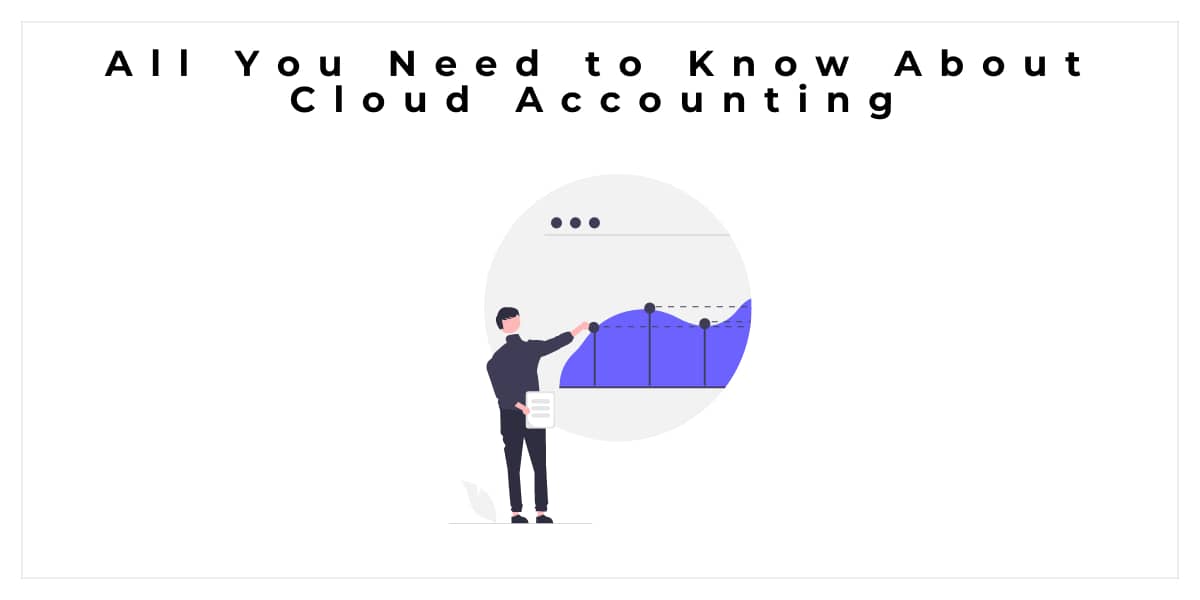Using paper for accounting and finance has become a relic of a bygone era. Today several tools and software systems help crunch numbers in a jiff. We know that technology has transformed all aspects of life, and finance is no exception. Who would have thought that the first accounting software released around 45 years ago could be the inception of a revolution in accountants’ lives? And this is not it.
As accounting software is becoming robust, innovations are taking over the formers. This means that technological advancements are on the drive. One such incredibly powerful innovation that is gaining immense traction is the cloud accountancy system. In this piece, we will discuss what is it, how it works, and more.
Let’s dig in right away!
What is Cloud Accounting?
Cloud Accounting refers to the usage of accounting software hosted on a safe remote server. It allows users to manage all accounting operations on a cloud platform. Such software is offered as a service (SaaS). Users can use it by subscribing to a monthly or annual plan.
What's more, businesses can store and access accounting systems, reports, and financial records from the company computer anytime and anywhere. All you need is the internet. However, it is significant to ensure the internet is fast and safe for browsing. In short, you may count on a well-reputed ISP like Comcast. Sign up yourself for uninterrupted and safe connectivity. Check out Comcast Xfinity en español to learn more (For Spanish customers). However, accessing this system is not easy as they are encrypted with multiple-factor authentication. Therefore, unlike traditional desktop-based software, data can be safely stored, processed, and accessed from any device with an internet connection. Besides, it allows businesses to streamline their processes.
Around 60% of U.S. companies were reported to use cloud software to manage finance and accounting by 2019. It attests to the fact that more and more businesses are adopting cloud-based accountant software today.
What is the Difference Between Cloud Accounting and Conventional Accounting?
Conventional accounting is also known as in-premise accounting as it is only on-premises. It means that the software runs on the computer’s hard drive of the company. So, anyone who would need to access and use financial documents is required to use the computer. With conventional accounting, the risk of data loss is greater as the data is locally stored and not on the cloud. Using premise-accounting software is beneficial but it does not offer the flexibility and scalability the cloud software offers. Moreover, upgrading these systems is costlier than the maintenance of cloud software.
How Does Cloud Accountancy Work?
Simply put, cloud accountancy works by storing financial data on a remote server. As said earlier, users can access the data through a web browser or a dedicated app on a computer system or smartphone. As a result, it voids users from keeping physical storage devices to access data, and it offers real-time updates and insights for collaboration.
What are the Benefits of Cloud Accounting?
There are wide-ranging benefits of using cloud accountancy, and some of the prominent ones are:
- Access Business Numbers Round the Clock: Cloud accounting gives you access to your key finance and accounting data 24/7. By using cloud accountancy, teams at businesses can quickly access financial data anytime and anywhere. You can log in through a web browser on your computer or application on your mobile.
- Access to Real-Time Information: It is one of the incredible features of cloud accounting in that it offers real-time updates on financial reports, allowing accountants to make informed and well-thought-out decisions. It means, you no longer need to look at historical reports that are significantly outdated by days or weeks. Instead, it gives you a quick overview of the current financial numbers and figures.
- Automation:
Cloud accounting software can automate recurring processes, allowing finance teams to pay attention to more important tasks. For example, it can produce invoices, schedule reports, pay subscriptions, and more.
- Robust Security: The best thing about Cloud-based software is that it uses state-of-the-art security measures to keep your sensitive data safe. To start with, it applies multiple layers of security, like advanced encryption to protect your data. As a result, only authorized users can access financial data. Moreover, cloud accounting software can automatically back up your data so that you do not lose your data. Also, you do not need to worry if your computer system goes bad because your data is stored online.
- Saves Money: This software mitigates the need for highly-priced infrastructure and reduces the cost of maintenance and updates.
Bottom Line
Cloud accountancy can significantly benefit businesses of all sizes. From accessing financial records to getting valuable insights, it's possible to make accurate decisions for your business. However, it is important to choose the right software so that you can streamline your accounting processes, improve efficiency, and set the bar high for competitors.








